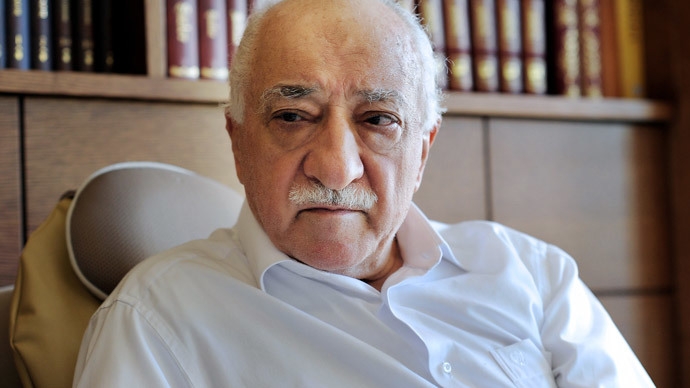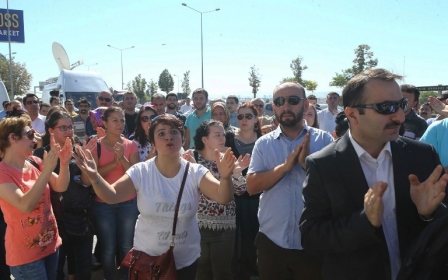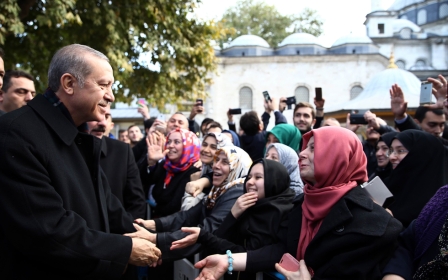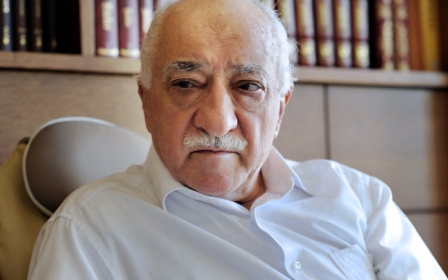Turkey tries preacher Gulen in absentia

A US-based Turkish preacher who has emerged as an arch-enemy of President Recep Tayyip Erdogan went on trial in absentia on Wednesday along with several former police chiefs charged over the corruption allegations that hit the Turkish leader in 2013.
Fethullah Gulen, a former ally of Erdogan turned chief foe, was not present at the start of the proceedings in Istanbul, with Washington failing to grant Turkish requests for his extradition from his compound in Pennsylvania.
He is being tried along with dozens of former police officers, including the former head of Istanbul police Yakup Saygili and the city's ex-deputy criminal police chief Kazim Aksoy, both of whom are said to have ordered the corruption probe.
The pair have been held in detention since September 2014 and were both in court at the start of the trial.
At total of 69 people including Gulen are on trial, facing terms ranging from seven years to 330 years.
The judge at Istanbul's main courthouse opened the proceedings by conducting a roll call of those present, an AFP correspondent said.
Erdogan, along with current and former ministers who are the plaintiffs in the trial, were represented by their lawyers, reported the Turkish newspapers.
A 1,453-page indictment drafted by prosecutor İsmail Ucar requested a additional prison terms of 52 years for Gulen on charges of a coup attempt.
Gulen was also charged with political espionage and obtaining confidential information regarding the state's security, reported Turkish Daily Sabah newspaper.
The corruption allegations directly implicated some of Erdogan's inner circle, including his son Bilal. The government denied the claims, which it said came from Gulen and his acolytes in the judiciary and police.
Erdogan, his son Bilal, son-in-law Berat Albayrak and Turkey's spy chief Hakan Fidan are among the plaintiffs in the case, along with four former ministers who lost their jobs over the corruption allegations.
The top suspects are charged with plotting to topple the Turkish government with the graft allegations, as well as membership of a "terrorist group".
The scandal was seen as one of the biggest challenges to the dominance of then prime minister Erdogan. He survived the allegations, however, and went on to become president in August 2014.
Despite living outside of Turkey, Gulen built up huge influence in the country through allies in the police and judiciary, media and a vast network of cramming schools designed to make up for deficiencies in the state education system.
Ankara now accuses Gulen of running what it calls the "Fethullahaci terror organisation/parallel state structure" and seeking to overthrow the legitimate Turkish authorities.
Gulen supporters decry the accusations as ridiculous, saying all he leads is a more informal group known as Hizmet (service).
Middle East Eye propose une couverture et une analyse indépendantes et incomparables du Moyen-Orient, de l’Afrique du Nord et d’autres régions du monde. Pour en savoir plus sur la reprise de ce contenu et les frais qui s’appliquent, veuillez remplir ce formulaire [en anglais]. Pour en savoir plus sur MEE, cliquez ici [en anglais].




